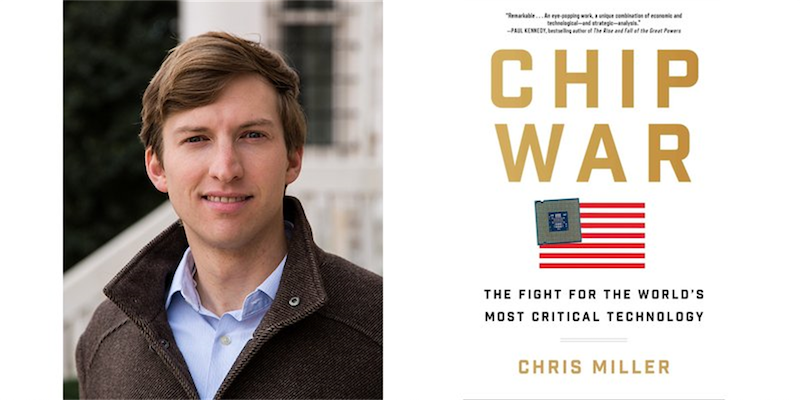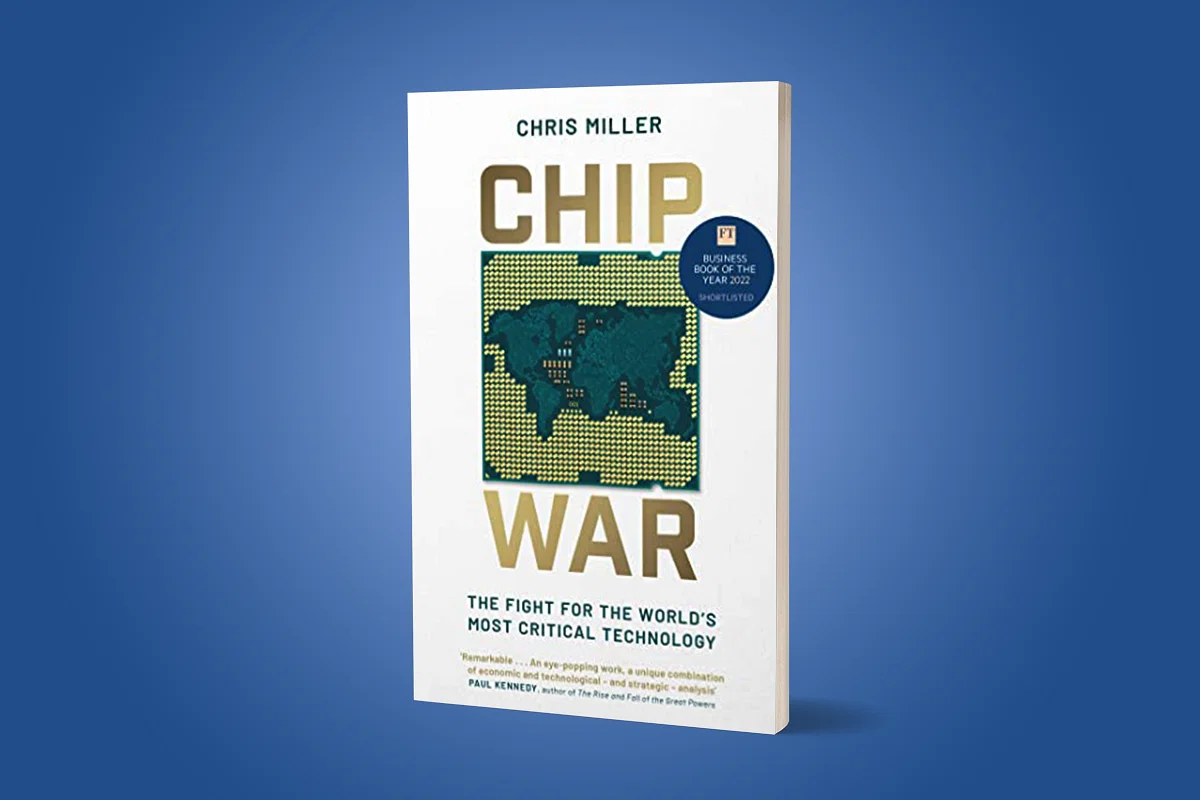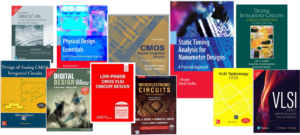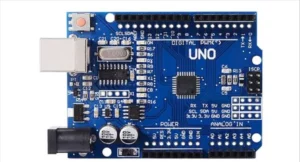Introduction
Chip War by Chris Miller is a fascinating and well-researched book that tells the story of the semiconductor industry. The book is full of interesting facts, anecdotes, and insights, and it is sure to keep you entertained from beginning to end. Miller does a great job of explaining the importance of semiconductors, and he shows how they have changed the world. He also provides valuable insights into the geopolitical implications of the semiconductor industry, and he shows how this industry is becoming increasingly important in the global economy.
Let me state the obvious; if the world loses access to one specific company and its plant in Taiwan, we will be…sent back to the dark ages; to the time BC – Before Chips.
The book is a must-read for anyone who is interested in technology, business, or geopolitics. It is also a valuable resource for policymakers and businesses who want to understand the semiconductor industry and its importance to the global economy.
10 Reasons why EVERYONE should read this book:
1. It’s a fascinating and well-written book that tells the story of the semiconductor industry.
- For example, the book tells the story of Jack Kilby, who invented the integrated circuit in 1958. Kilby was a brilliant engineer who had a vision for how semiconductors could change the world. He was also a bit of a maverick, and he often clashed with his superiors.
- Another example is the story of Gordon Moore, who co-founded Intel in 1968. Moore is known for his “law,” which states that the number of transistors on a chip doubles every two years. Moore’s law has been a driving force behind the growth of the semiconductor industry, and it has helped to make possible the development of new technologies like smartphones and laptops.
2. It’s important to understand the role that semiconductors play in our world.
- For example, semiconductors are essential for the operation of smartphones. Without semiconductors, smartphones would not be possible.
- Another example is the role that semiconductors play in cars. Cars are becoming increasingly reliant on semiconductors, and they are now used in everything from the engine to the infotainment system.
3. The book provides valuable insights into the geopolitical implications of the semiconductor industry.
- For example, the book discusses the “chip war” between the United States and China. The chip war is a conflict over the control of the global semiconductor supply chain.
- Another example is the book’s discussion of the importance of semiconductors to national security. Semiconductors are essential for the development of military technology, and they are also used in critical infrastructure like power grids and communication networks.
However, “globalization” of chip fabrication hadn’t occurred; “Taiwanization” had. Technology hadn’t diffused. It was monopolized by a handful of irreplaceable companies. American tech policy was held hostage to banalities about globalization that were easily seen to be false.
Chris Miller: Chip War: The Fight for the World’s Most Critical Technology
4. The book is a must-read for anyone who is interested in technology, business, or geopolitics.
- For example, if you are interested in technology, you will learn about the history of semiconductors and the latest trends in semiconductor technology.
- If you are interested in business, you will learn about the competitive landscape of the semiconductor industry and the challenges and opportunities that face semiconductor companies.
- If you are interested in geopolitics, you will learn about the role of semiconductors in the global economy and the implications of the chip war for the United States and China.
5. The book is full of practical advice for policymakers and businesses.
- For example, the book provides advice for policymakers on how to protect the U.S. semiconductor industry from foreign competition.
- The book also provides advice for businesses on how to navigate the challenges of the semiconductor industry and how to ensure that they have a secure supply of chips.
6. The book is a page-turner that will keep you hooked from beginning to end.
- The book is full of interesting facts, anecdotes, and insights, and it is sure to keep you entertained from beginning to end.
- The book is also well-written and engaging, and it is sure to keep you wanting more.
7. The book is a timely read that is relevant to the current geopolitical landscape.
- The book was published in 2022, and it is still relevant to the current geopolitical landscape. The chip war is still ongoing, and the book provides valuable insights into this important issue.
- The book is also relevant to the future of technology, as it discusses the latest trends in semiconductor technology and how they are likely to impact the way we live and work in the years to come.
8. The book is a must-read for anyone who wants to understand the future of technology.
- The book discusses the latest trends in semiconductor technology and how they are likely to impact the way we live and work in the years to come.
- This information is essential for anyone who wants to understand the future of technology and how it will change our world.
9. The book is a thought-provoking read that will challenge your assumptions about the world.
- The book challenges our assumptions about the global economy, the role of technology, and the future of the United States.
- This information is essential for anyone who wants to think critically about the world and how it is changing.
10. The book is a valuable resource that you will come back to again and again.
- The book is comprehensive and well-researched, and it provides valuable information about the semiconductor industry.
- This information is essential for anyone who wants to understand the semiconductor industry and its importance to the global economy.

Key takeaways from Chip War
Government Initiates, Industry Surpasses
- In its early days, the US government played a crucial role in kickstarting the semiconductor industry.
- Fairchild Semiconductor, a pioneering company, heavily relied on military and space applications for over 95% of its chip production in 1965.
- Presently, the US government’s share in the chip market has dwindled to around 2%, with outsourcing becoming the norm even for military and spy applications.
- The high cost of establishing chip-making plants has limited the government’s involvement due to budget constraints.
The Pitfalls of Copycat Strategies
- The USSR’s attempt to spy on and reverse engineer the US chip sector failed, leading to technological backwardness.
- Soviet copies of Intel and Motorola chips consistently lagged half a decade behind the original technology.
Gender Disparity in the Semiconductor Industry
- The industry historically lacked female representation, with few women recognized for their contributions.
- Early chip firms hired women for assembly line work, exploiting lower wages and lesser demands for better working conditions.
Competitive Advantage of Low Interest Rates and Outsourcing
- Japanese companies gained prominence in the 1970s and 1980s due to access to low-interest rate loans for building semiconductor factories.
- Outsourcing chip production to companies like Samsung and TSMC helped US firms like Qualcomm thrive by focusing on chip design.
Pivotal Thought Experiment and Missed Opportunities
- Intel’s CEO, Andy Grove, posed a thought experiment that led to a strategic shift toward microprocessors, ensuring the company’s survival.
- Intel’s refusal to build chips for the iPhone cost them a significant opportunity, hindering their innovation and growth.
Also Read: Who invented memory..Intel or Toshiba?
Visionaries and Industry Leaders
- Foreseeing the demand for chips designed by customers, TSMC’s founder Morris Chang established a successful semiconductor manufacturer.
- ASML’s integration of components from various manufacturers facilitated its leading position in lithography equipment.
The Duopoly of Advanced Semiconductor Manufacturing
- Only Samsung (South Korea) and TSMC (Taiwan) are capable of the most advanced semiconductor manufacturing.
- TSMC dominates with a 55% market share for chips designed by other companies, and its importance to Taiwan’s national security is evident.
China’s Dependency and Ambitions
- China’s ambition to gain semiconductor technology superiority faces obstacles due to its heavy reliance on US chips.
- US restrictions on chip sales to Chinese companies, like Huawei, have impacted China’s tech industries and prompted reliance on open-source and older technologies.
Conclusion
- The semiconductor industry’s journey reflects the dynamic interplay between government initiatives and private sector innovations.
- As the landscape evolves, strategic foresight, gender inclusion, access to funding, and global partnerships will remain vital factors shaping the industry’s future.




